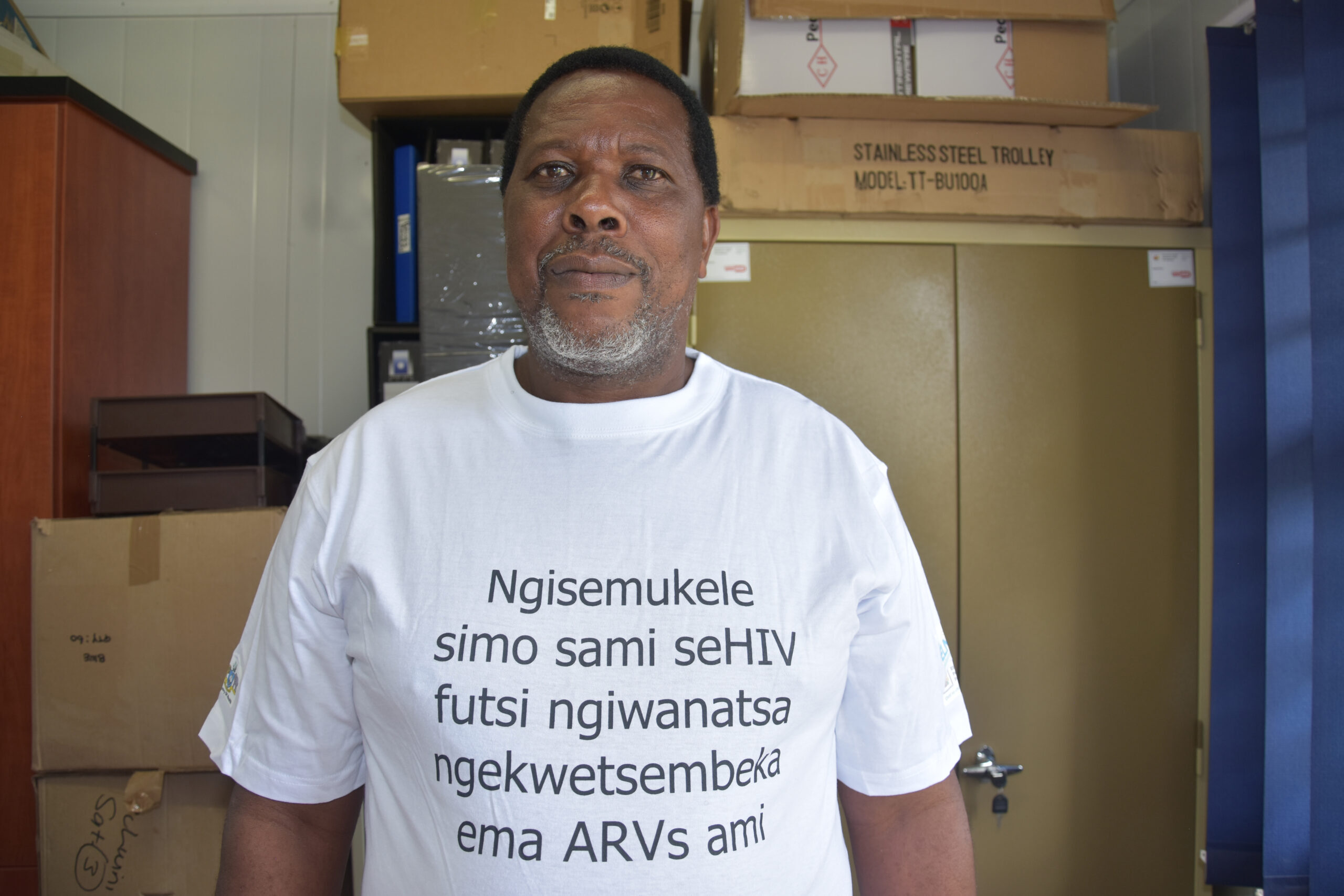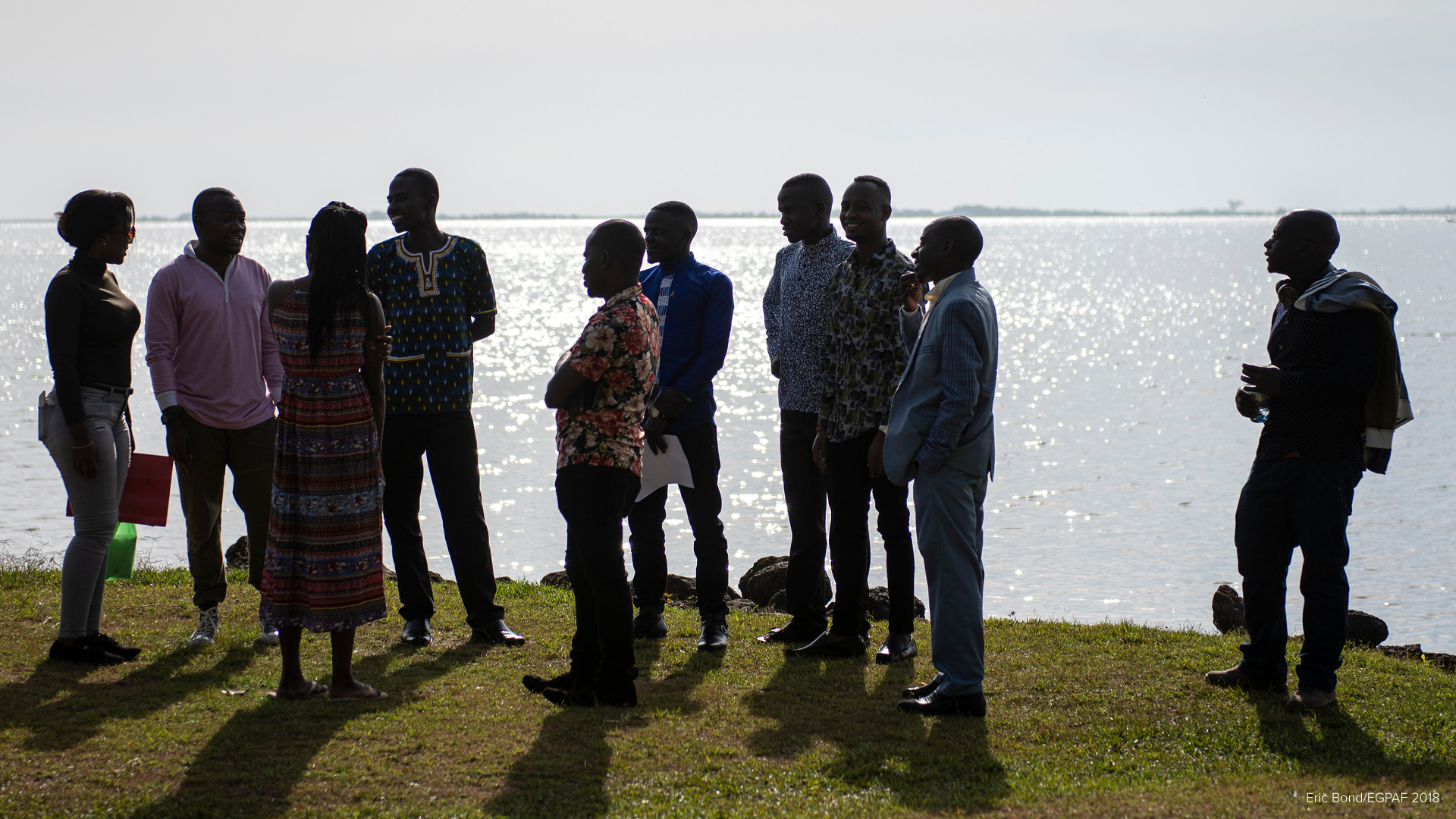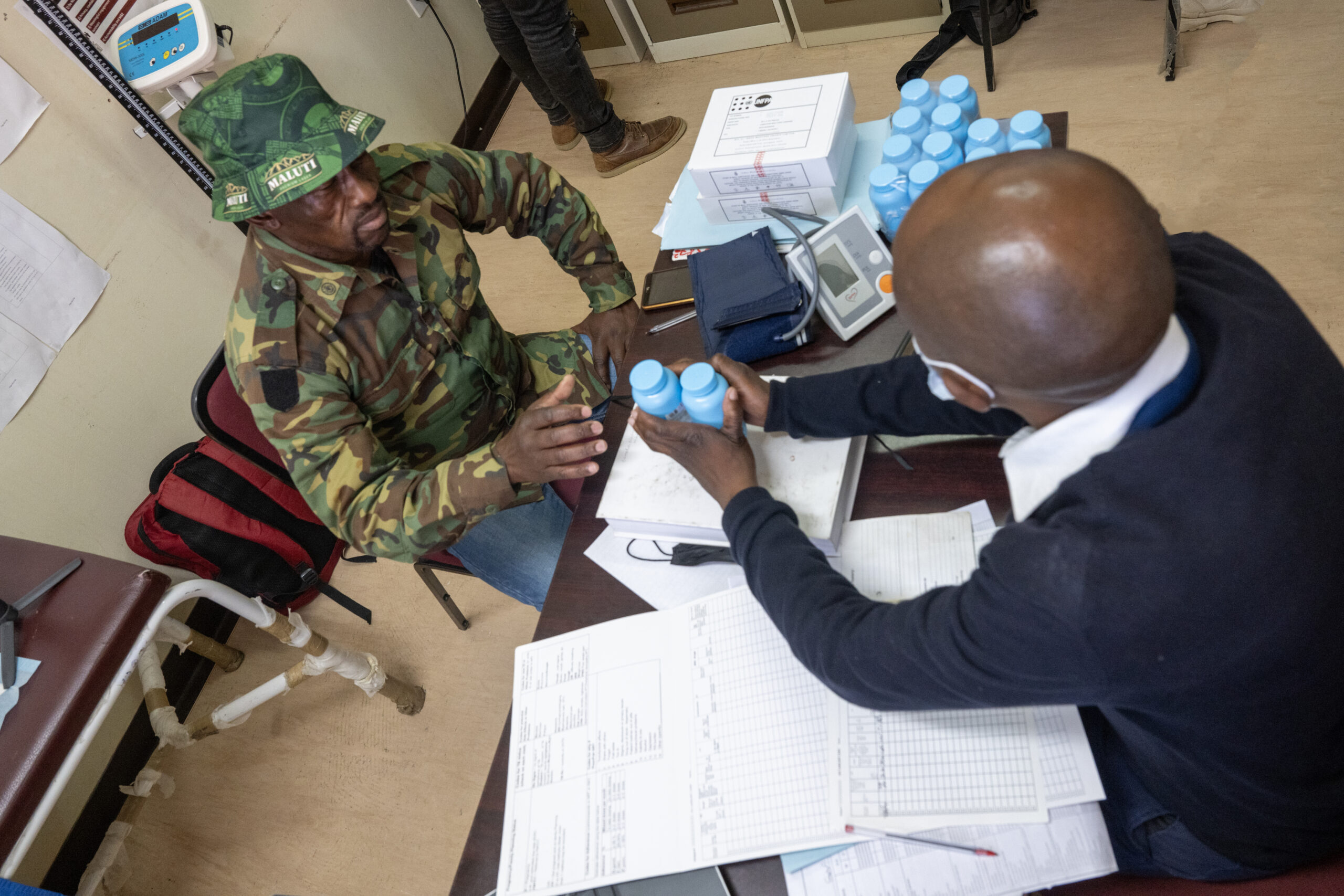Characterized with high levels of stigma and discrimination, HIV has seen a lot of men either refuse to test for the virus or fail to disclose their HIV-positive status to partners—which both of which contribute to new HIV infections in Eswatini.
To beat this trend, support groups for men living with HIV are beginning to emerge in some of the facilities supported by the Elizabeth Glaser Pediatric AIDS Foundation (EGPAF), with funding from the U.S. President’s Plan for AIDS Relief (PEPFAR) through USAID. EGPAF is working with the healthcare facilities to ensure that men coming to these facilities are given priority and those living with HIV are encouraged to join or form a support group.
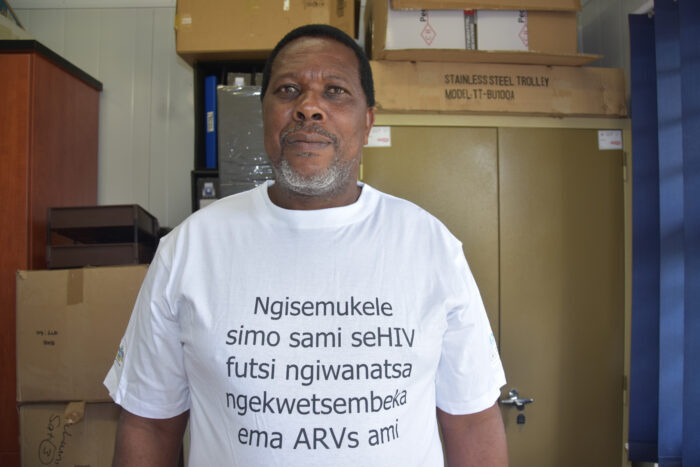
One support group, attached to the Ezulwini Satellite Clinic in the Hhohho region, has seen members going against all odds to ensure that their voices are heard both at the facility and the community levels. EGPAF has been instrumental in setting up this support group as part of its strategy to mobilize men for uptake of health services.
Musa Mkhonta, chairman of the 20-member men support group, cannot hide his excitement on the way the support group functions. The 61-year-old father of 11 children says that he started taking antiretroviral (ARV) medication in 2014 after testing positive for HIV, but had not been bold enough to talk about his status until 2018 when the facility recommended forming a support group for men.
Musa says that being a member of a support group has helped him get to know how other men living with HIV deal with the issues of stigma and discrimination associated with being HIV-positive.
Every one of us needs that strong social and emotional support, and we can only get that by coming together as men and sharing our experiences and assisting each other to cope. Musa Mkhonta
“The support group has helped me a lot with adherence to treatment and ensuring that I take my medication freely within the stipulated times,” he says.
Musa says that HIV was no longer the life-threatening disease it used to be in the late 1980s and early 1990s. HIV is now treatable, and if the client adheres well to their medication, they can even reach an undetectable viral load, which studies have shown means makes the HIV untransmissible to others. For this reason, all men need to test so that they know their HIV status, enroll in treatment, and can provide the necessary support to each other.
“Every one of us needs that strong social and emotional support, and we can only get that by coming together as men through such platforms as the support groups and sharing our experiences and assisting each other to cope with the stress that comes with the pressure of being in life-long medication,” says Musa. He adds that it is important for every man living with HIV to find someone to confide in safely to help to overcome everyday challenges regarding treatment, prevention, relationships, and general well-being.
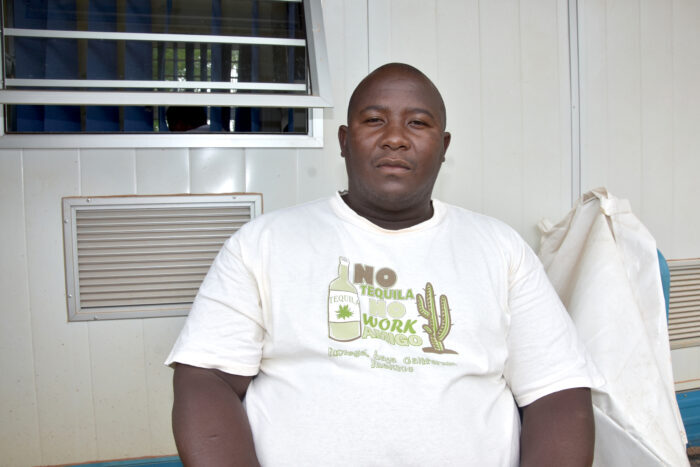
Another member of the support group, Sifiso Ndlovu, is also excited about the support he receives, saying that the support group is effective and is a positive change in the community.
Sifiso says that it is noble for men living with HIV to tell their life stories and share experiences so that others will look to the men for direction. The father of five says that if they do not tell their stories and play their support role as men, the issues associated with stigma and non-adherence to treatment will continue in Eswatini.
“Living with HIV is not a curse; this is what we are preaching to each other during our support group meetings.” he says. “We need to openly talk about these things so that more people seek treatment,” he says.
Sifiso says that before he fell sick in in 2015, he was afraid of testing for HIV because there were lot of stories going about the disease—for instance, that HIV medication did not help. Some men worried that if they are found to be living with HIV, they will be open to ridicule in the community.
“The difficult we face as men is that we are looking down to ourselves and think that once we share our status with other people we will lose our dignity,” says Sifiso.
We need to openly talk about these things so that more people seek treatment. Sifiso Ndlovu
Bongani Ndlangamandla, EGPAF’s technical advisor responsible for providing support supervision and mentorship to this facility, says they felt the need for form this support groups after noticing that some of the men were having difficulty disclosing their status to their partners, resulting to them defaulting on treatment.
Lindiwe Magongo, the health care facility nurse-in-charge, says that she is grateful for the support they continue to receive from PEPFAR through USAID. She hopes to see this support group become the best in the country—to be used as a point of reference when talking about male participation in health issues.
“We are happy that it continues to grow and the members have a clear vision on how they want to do their business. They will be our ambassadors, attracting other men to the health facility for a comprehensive health service package including HIV testing services and Pre-exposure prophylaxis (PrEP),” she says.
EGPAF began supporting projects in Eswatini in 2003 with an aim of preventing mother-to-child HIV transmission. USAID, through PEPFAR, remains EGPAF’s main donor and has helped it to provide access to treatment and PMTCT services to more than 2 000 women and HIV testing services to over 87 000 individuals in Eswatini.

